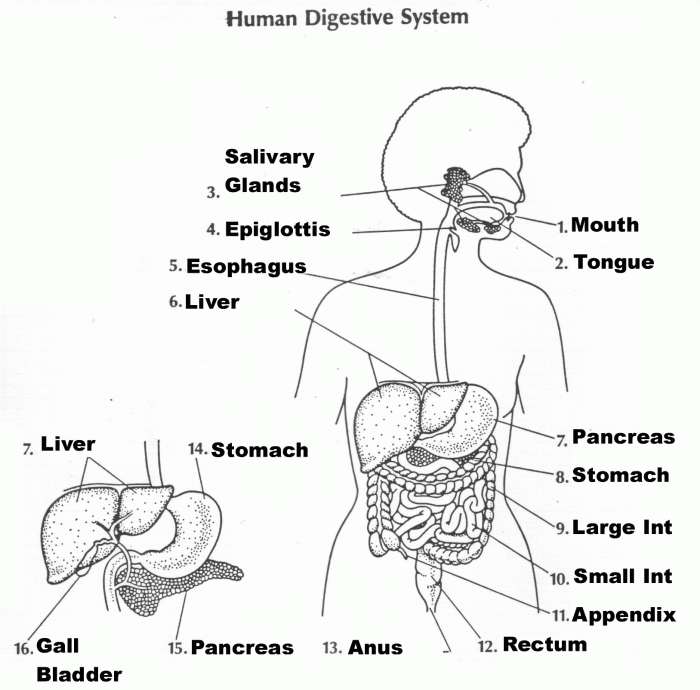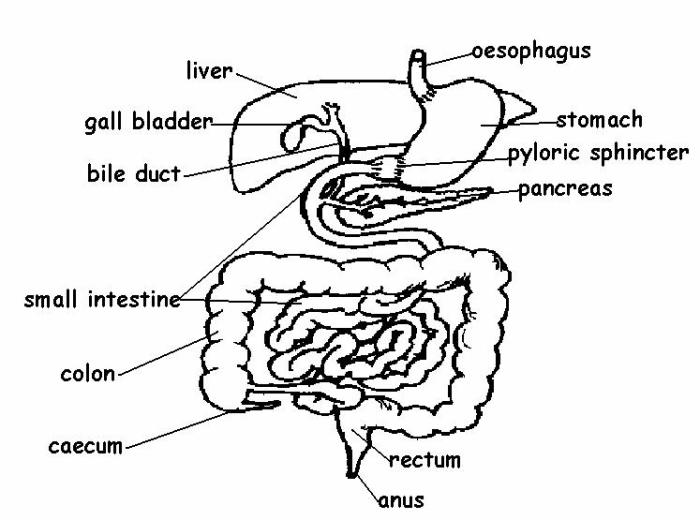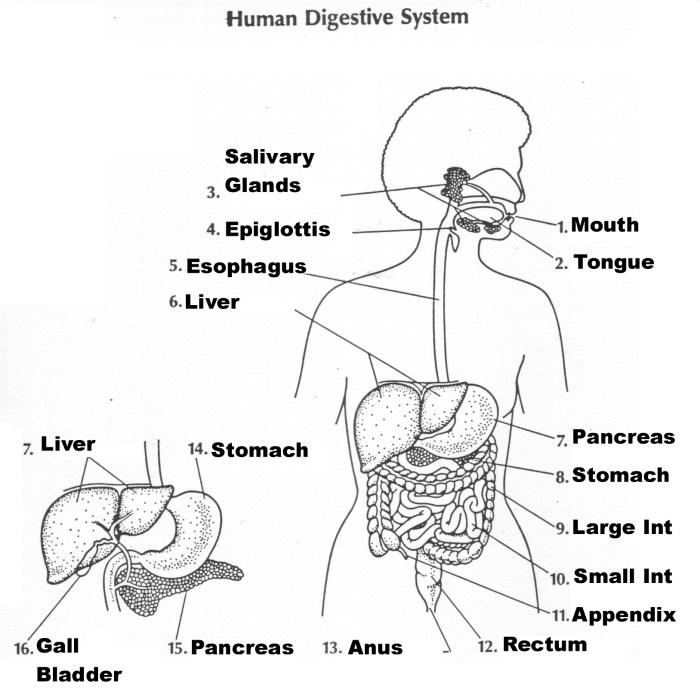Label the digestive system worksheet answers provide an in-depth understanding of the intricate network of organs responsible for the digestion of food. This guide explores the anatomy, functions, and processes involved in the digestive system, equipping readers with a comprehensive knowledge of this vital system.
Through a detailed diagram and table, students can identify and locate each component of the digestive system, from the mouth to the anus. The worksheet reinforces the understanding of the digestive processes, including ingestion, digestion, absorption, and elimination, highlighting the role of enzymes, hormones, and other substances.
Anatomy of the Digestive System

The digestive system is a complex network of organs that work together to break down food, absorb nutrients, and eliminate waste. The main components of the digestive system include the mouth, esophagus, stomach, small intestine, large intestine, rectum, and anus.
Mouth
The mouth is the first part of the digestive system. It contains teeth, which break down food into smaller pieces, and saliva, which contains enzymes that begin to break down carbohydrates.
Esophagus
The esophagus is a muscular tube that connects the mouth to the stomach. It uses rhythmic contractions called peristalsis to push food down into the stomach.
Stomach, Label the digestive system worksheet answers
The stomach is a J-shaped organ that secretes gastric juices, which contain hydrochloric acid and enzymes that break down proteins. The stomach also churns and mixes food to further break it down.
Small Intestine
The small intestine is a long, coiled tube where most of the digestion and absorption of nutrients takes place. It is lined with villi, which are small, finger-like projections that increase the surface area for absorption.
Large Intestine
The large intestine is responsible for absorbing water and electrolytes from the remaining food material. It also contains bacteria that help to break down waste products.
Rectum
The rectum is the final part of the large intestine. It stores waste products until they are eliminated.
Anus
The anus is the opening at the end of the digestive system through which waste products are eliminated.
Digestive Processes

The process of digestion begins with ingestion, which is the act of taking food into the mouth. Food is then broken down into smaller pieces by the teeth and mixed with saliva. The saliva contains enzymes that begin to break down carbohydrates.
Once food is swallowed, it travels down the esophagus into the stomach. The stomach secretes gastric juices, which contain hydrochloric acid and enzymes that break down proteins. The stomach also churns and mixes food to further break it down.
From the stomach, food moves into the small intestine. The small intestine is lined with villi, which are small, finger-like projections that increase the surface area for absorption. The small intestine also secretes enzymes that break down carbohydrates, proteins, and fats.
Once nutrients have been broken down, they are absorbed into the bloodstream through the villi. The remaining food material moves into the large intestine. The large intestine absorbs water and electrolytes from the remaining food material. It also contains bacteria that help to break down waste products.
The waste products are then stored in the rectum until they are eliminated through the anus.
Label the Digestive System

Diagram of the Digestive System
[Diagram of the digestive system]
Table of Digestive System Components
| Name | Location | Function |
|---|---|---|
| Mouth | Head | Breaks down food and begins digestion |
| Esophagus | Neck and chest | Connects the mouth to the stomach |
| Stomach | Upper abdomen | Secretes gastric juices and churns food |
| Small Intestine | Abdomen | Absorbs nutrients |
| Large Intestine | Abdomen | Absorbs water and electrolytes |
| Rectum | Lower abdomen | Stores waste products |
| Anus | End of the digestive system | Eliminates waste products |
Blank Table for Students
| Name | Location | Function |
|---|---|---|
Detailed FAQs: Label The Digestive System Worksheet Answers
What is the function of the stomach?
The stomach secretes gastric juices to break down food and initiate digestion.
What is the role of the small intestine in digestion?
The small intestine is responsible for the absorption of nutrients from digested food.
What are the common symptoms of irritable bowel syndrome?
IBS symptoms include abdominal pain, bloating, and altered bowel habits.